Convenience retailers are some of the hardest workers in the UK, but putting in the hours doesn’t always guarantee results. These days it’s all about working smarter, not harder. And how do you do that? With technology. Whether it’s money-saving smart meters or time-saving epos, sales-boosting social media solutions or clever chillers, technology has the potential to transform your business.
Here Convenience Store looks at the technologies available to the sector and speaks to the retailers who use them. It’s time to take your business to another level.
Supply chain
Web-based ordering systems are seen by many as the future of the industry - B2B e-commerce portal Alibaba is already said to be bigger than Amazon and Ebay put together. Using the internet to order goods and grab promotions allows retailers to slash waste, better manage stock and boost their profits. With just a scan of a barcode or push of a button, pioneers of the new technology are seeing massive benefits, and keeping shelves stocked is being transformed
Automatic ordering

Budgens retailer Paul Gravelle wanted to move away from manual ordering to a more efficient system. “We have a massive fresh range so ordering with a manual book was incredibly time consuming, and it caused a problem if someone was sick or on holiday,” he says. Torex’ (Micros) auto-ordering system on epos was the ideal solution, but it came with basic instructions and had been designed more for a forecourt store with far fewer lines. So Paul set about reprogramming it to fit the needs of his larger stores, and has been training other retailers since.
The system bases its orders on historical average daily sales from the store’s database, so in theory stock will be perpetually replenished without any human intervention - as long as you enter correct minimum stockholding requirements and keep accurate stockholding figures. However, retailers regularly check the orders as it doesn’t take into account variations such as changes in the weather or seasonal events.
Carl Mendhan, manager of Budgens Dersingham in Norfolk, has been using auto-ordering for a few months after receiving training from Paul. “Every day we manually change something,” he says, although he still saves a significant amount of time ordering. “We used to spend up to one-and-a-half hours a day ordering with stock and order books. Now it takes minutes to generate, about 20 minutes checking and then a few more to process the stocktaking,” he says. Paul doesn’t regard the additional manual work as a burden, insisting that it’s “good practice to double check anyway”.
1956
The first hard drive was made by IBM. It was the size of a cupboard and held 5MB of data
1963
The first mouse was invented by Douglas Engelbart and was made out of wood. However, the first commercial mouse was the Xerox Parc in 1970
1974
The first scanning of a Universal Product Code barcode took place at 8.01am on June 26. It was on a packet of Juicy Fruit Wrigley’s gum. The pack of gum and receipt is now on display in the Smithsonian Museum, Washington, USA
1989
The first palmtop was developed by Atari. It appeared in the film Terminator 2 in 1991
The time saved has been invaluable for both retailers. “It’s massively freed up our staff’s time to focus on other things, such as gaps and wastage. They do gap counts every day and once a month do a wastage review,” says Paul.
Auto ordering has also saved the retailers hundreds of pounds a week on waste. Says Paul: “We now don’t need to reduce the price on anything, unless we make a mistake on promotions or seasonal uplifts.”
Carl adds: “It saves on waste because it’s ordering just what you’re selling. Our stockholding has gone right down. I’d say we’re saving about £400 a week.”
Paul advises retailers to review the system so they’re not caught out by seasonal trends. “For example, you’ll sell lots of ice over the summer so you need to remember to reduce it after the hot weather,” he warns. “You’ve got to manage it properly - then it’ll do the job properly.”
Apps

Symbol groups are also moving with the times. Nisa recently launched a new members’ app which has “revolutionised” the ordering process, says Rav Garcha, who owns four Nisa stores in the West Midlands area. The members’ app allows retailers to order new web deals and pre-sells directly from their mobile or tablet device, as well as providing members with regular updates on product and delivery news.
“I can be anywhere when I order,” says Rav. “And it adds a new dimension to customer requests - I can attach them to an order there and then.” He adds that the app enables him to scan barcodes to see what the price of a product will be in the future, and when it will be on promotion. “Sometimes customers ask for really obscure things, so now we can say how much it’ll be and we can order it there and then,” he says.
Rav also welcomes the flexibility the app affords him to keep an eye on his prices. “I was having my dinner the other night and I wanted to check we were charging the right price for strawberries, and I could check immediately. Before I’d have to call someone in the store to find out.”
Saki Ghafoor, who owns two Nisa stores in the North East, also uses the app to check pre-sell and promotional deals, as well as for product searching. “If I’m out and about and I see a product I can immediately check to see if Nisa is selling it,” he says. “I can then add it to an order, but I’ll always make the orders at store level.”
Saki has been using auto-ordering for about six months, mainly for tobacco and alcohol. “It’s a big time-saver,” he says.
Handy tools
Scottish wholesaler JW Filshill offers a bespoke epos system called Re-scan, which incorporates stock and order functions, as well as promotion hosting and retail price management. The technology includes a hand-held terminal which has ordering and stock-check capabilities.
“You scan an item and it gives you info on the last four weeks of sales. It’ll tell me how many products I sold in that period and recommends how much I should order,” says David Mitchell, manager of the company-owned KeyStore in Renfrew. “You can then place the order there and then. It’s been fantastic for us,” he reveals.
He says it takes about an hour to place a four to five pallet order, compared with about two-and-a-half hours previously. “It also used to take about a day to activate promotions, but now the company sends them straight through to the terminal and I can activate them in 10 minutes.”
Gillian McKee, manager of Keystore Kirkcudbright, says Re-scan also includes a handy ‘premium price’ facility if you want to sell products above the rrp. “It tells you how much you’ll earn if you make those sales. Filshill will then automatically implement the requested price in the delivery.”
The technology provides other, indirect benefits to retailers, explains Filshill managing director Simon Hannah. “Using the data provided by our Re-scan retailers, we will be able to negotiate for stronger promotions on their behalf. This, in turn, is of benefit to the consumer because it means shoppers have access to the keenest promotions on the products they buy regularly in their local convenience store.”
KeyStore retailers can also order online via the website.
See how technology is driving efficiency
See how technology is drving customer engagement
See how technology is driving energy-saving




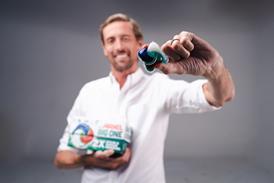











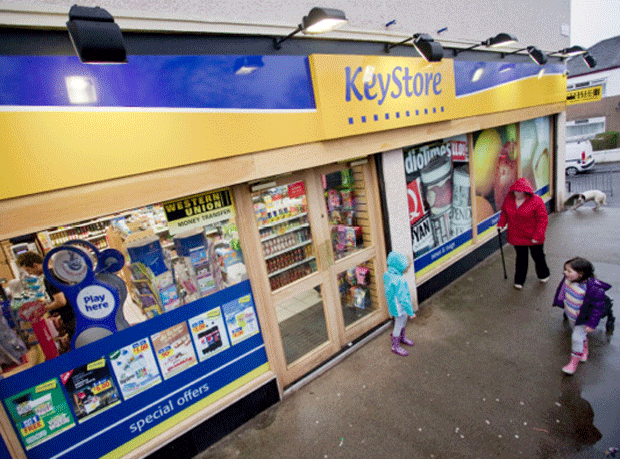
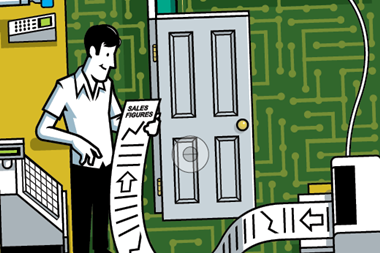
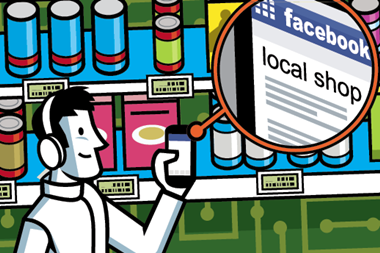
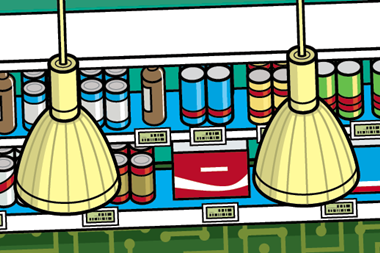




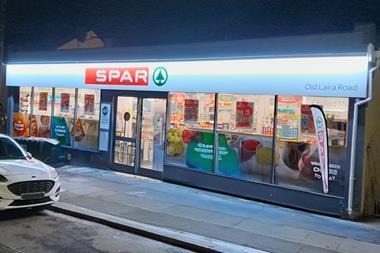

No comments yet